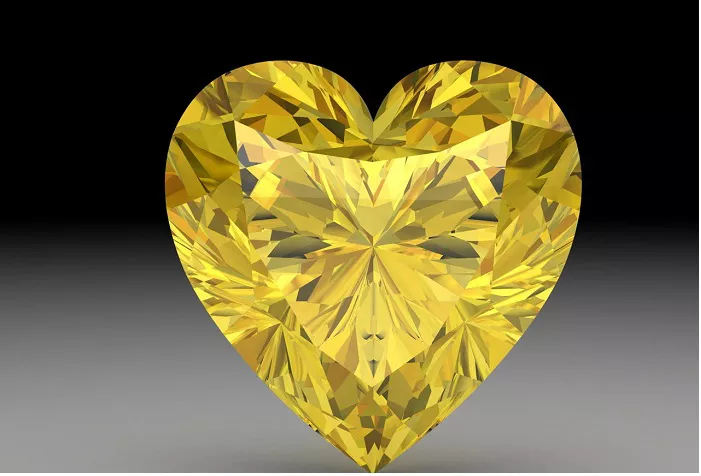Yellow sapphires are treasured for their vibrant color and brilliance. However, a growing practice in the gemstone market involves beryllium treatment, which enhances the color of these gems. While this treatment can make yellow sapphires more appealing, it raises important questions about their safety and value. In this article, we will explore the risks associated with beryllium-treated yellow sapphire gems, examining the treatment process, potential hazards, and how to make informed choices when purchasing these gemstones.
Understanding Beryllium Treatment
Beryllium treatment involves the infusion of beryllium into sapphires to enhance their color. This process typically occurs at high temperatures, allowing the beryllium to alter the gem’s internal structure. The result is a more vibrant yellow hue that is often more marketable than untreated stones.
The Process of Treatment
Selection of Rough Stones: The treatment starts with the selection of natural sapphires that exhibit some color but lack the intensity desired by consumers.
High-Temperature Treatment: These stones are then heated in a controlled environment with beryllium compounds. The treatment can last several hours, depending on the desired color intensity.
Cooling and Stabilization: After heating, the stones are cooled slowly to stabilize the new color.
This process can significantly enhance the visual appeal of yellow sapphires, making them more attractive to buyers. However, it is essential to understand the implications of this treatment.
Potential Risks of Beryllium Treatment
While beryllium treatment can enhance the color of yellow sapphires, it also poses several risks that consumers should be aware of.
Health Concerns
One of the primary concerns with beryllium-treated gems is the potential health risk associated with beryllium exposure. Beryllium is a toxic element that can cause serious health issues if ingested or inhaled over extended periods. Although the risks are minimal for the average consumer simply wearing or handling these gems, they are still present, particularly for gem dealers and those involved in the cutting and polishing process.
Environmental Impact
The process of extracting beryllium and its subsequent use in gemstone treatment raises environmental concerns. Mining and processing of beryllium can lead to land degradation, water contamination, and other ecological disturbances. As consumers, we should consider the environmental footprint of the products we choose to buy.
Value and Market Perception
Beryllium-treated yellow sapphires may also experience fluctuations in market value. Many gemologists and collectors prefer untreated stones for their rarity and natural beauty. As awareness of beryllium treatment grows, some buyers may view treated gems as less valuable, potentially affecting their resale value.
Risk of Misrepresentation
Unfortunately, not all sellers disclose the treatment status of their yellow sapphires. This lack of transparency can lead to consumers unknowingly purchasing treated stones at prices typically reserved for untreated gems. To avoid this, always request documentation that confirms the treatment status of the gemstone.
How to Identify Beryllium-Treated Yellow Sapphires
Being able to identify whether a yellow sapphire has undergone beryllium treatment can help consumers make informed purchasing decisions. Here are some tips:
Professional Evaluation
The best way to determine if a yellow sapphire has been treated is to have it evaluated by a certified gemologist. They can use advanced techniques, such as spectroscopy, to identify the presence of beryllium and other treatments.
Certification and Documentation
When purchasing a yellow sapphire, always ask for certification from a reputable gemological laboratory. Look for details regarding any treatments the gemstone has undergone. Certificates from established labs, like GIA or AGS, provide assurance of the gem’s authenticity and treatment status.
Visual Inspection
While it can be challenging for the untrained eye, some beryllium-treated sapphires may exhibit signs of treatment, such as unnatural color zoning or inconsistent color distribution. Familiarizing yourself with the characteristics of natural yellow sapphires can help in identifying potential treatments.
Making Informed Choices
When it comes to purchasing yellow sapphires, knowledge is your best ally. Here are some steps you can take to ensure you are making an informed decision:
Educate Yourself
Understanding the nuances of gemstone treatments, including beryllium treatment, can empower you as a consumer. Research reputable sources, read articles, and consider attending gem shows or educational workshops.
Seek Reputable Dealers
Always purchase gemstones from established and trustworthy dealers. Look for reviews, ask about their sourcing practices, and ensure they provide transparent information about their gemstones.
Prioritize Transparency
Demand transparency from sellers regarding the treatment status of their gemstones. If a seller hesitates to provide information or documentation, it may be a red flag.
Conclusion
Beryllium-treated yellow sapphires offer stunning beauty and vibrant colors, but they come with potential risks that consumers must consider. From health concerns related to beryllium exposure to the environmental impact of gemstone treatment, being informed is crucial. By seeking professional evaluations, ensuring certification, and prioritizing transparency in your purchases, you can confidently navigate the world of yellow sapphires.
Ultimately, while beryllium treatment can enhance a gemstone’s aesthetic appeal, the responsibility lies with consumers to understand the implications of these treatments. By making informed choices, you can enjoy the beauty of yellow sapphires while safeguarding your health and the environment.
Related topic:
- The Benefits of Wearing Yellow Sapphire and Ruby Together
- Yellow Sapphire: The Perfect Partner For an Unmarried Girl
- How to Determine If Yellow Sapphire Is Your Perfect Gemstone


